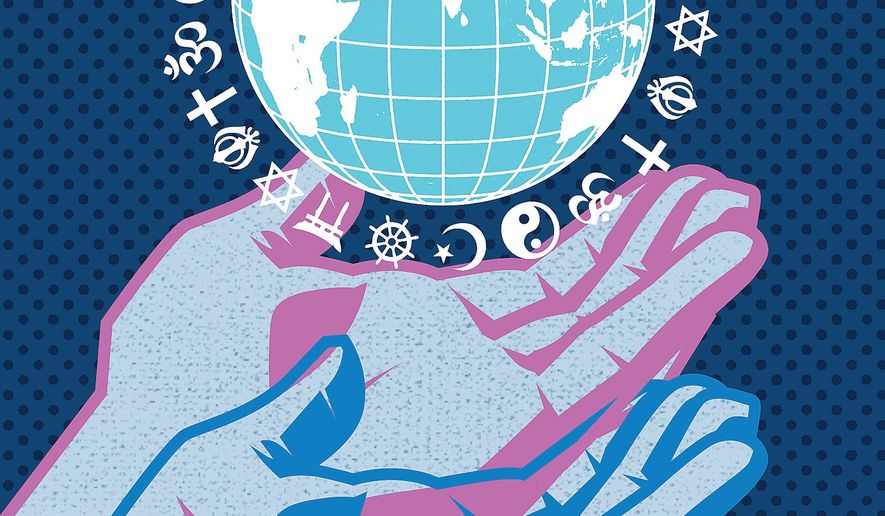OPINION:
Pondering the meaning of life is practically universal, but conclusions preserved in the human heart are uniquely personal. Moreover, whether the search leads to organized religion, an individual creed, or a fruitless journey to nowhere is a private matter — or should be. Through the ages, though, the authoritarian class has habitually attempted to institute their own faith choices for one and all. Even the modern era, for all its enlightenment, is nonetheless rife with intolerance. Vigilant defense of religious freedom is required.
The International Religious Freedom (IRF) Summit 2023, concluding Wednesday in Washington, casts light on the need for such protection at a time when, as its statement of purpose declares, “almost 80 percent of the world’s inhabitants live in countries where there are high levels of governmental or societal restrictions on religion, and restrictions have been steadily increasing for several years.”
Sessions with broad subject matter such as “Why IRF is vital to U.S. foreign policy” join targeted topics that include “Persecution in Nigeria: Business, Security, and Human Rights.” The three-day summit serves as a clarion call against officialdom’s creeping infiltration and defacement of the private world of belief.
A recent Pew Research Center survey validates the summiteers’ concerns, demonstrating that even in the 21st century, governmental and cultural hostilities toward religious adherents persist around the world. Outbreaks of intolerance make headlines that grab attention but seldom prompt redemption. A case in point is Iran, where security forces wantonly slaughter protesters by the hundreds for opposing the killing of a young woman who ignored the Islamist nation’s dress code.
The West is not immune from religious bias either. In Europe, a recent spate of Quran burnings has coincided with a late-January attack on two churches in Spain, where a machete-wielding Moroccan killed a clergyman and injured another. The outbreak of violence has prompted the U.S. Embassy in Istanbul to warn Americans of possible copycat attacks on churches, synagogues and diplomatic missions.
In the United States, 420 attacks on churches took place between 2018 and 2022, according to the Family Research Council. Catholic churches in particular have seen looting, arson and vandalism since 2020, according to Catholicvote.org, with 126 attacks occurring since the May 2022 leak of the Supreme Court’s decision to overturn Roe v. Wade’s federal abortion protections. So much for the vaunted values of “progressivism.”
Rather, pop-culturists prefer to trash the Christian foundations upon which they erect their trendy institutions. In stark contrast to the aforementioned IRF Summit, the recent World Economic Forum in Davos, Switzerland, devoted an outsized portion of its attention to propagating the pseudo-faith of radical environmentalism. The gathering featured a liturgy devoted to “addressing the current energy and food crises in the context of a new system for energy, climate and nature.”
Surely, if beauty resides in the eye of the beholder, then belief must be allowed to remain unmolested in the heart. Accordingly, authoritarians must be discouraged from attempting to invade the inner world of others for the purpose of supplanting their beliefs. The only certain remedy for religious bigotry is religious freedom.




Please read our comment policy before commenting.